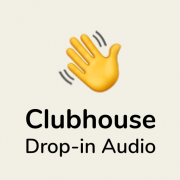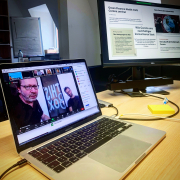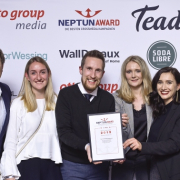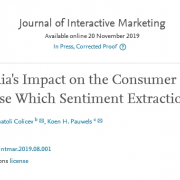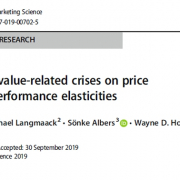Interview with Prof. Raoul Kübler about Sponsoring of Offshore Sailing and Success of German Vendee Globe Sailor Boris Herrmann published by segelreporter.com

MCM Professor Raoul Kübler was interviewed by Germany’s leading online sailing magazine segelreporter.com. With Boris Herrmann being the first German sailor to finish the world’s hardest solo around the world race, sailing gained in popularity and enjoyed a substantial increase in screen and media time.
In his interview, Professor Kübler discusses the reasons behind the growing public interest in offshore sailing and how Boris Herrmann successfully used social media to engage with a worldwide audience to promote his campaign but also sailing in general.
He concludes that the accessibility of Boris Herrmann, the high degree of authenticity and emotionality was a huge benefit for the campaign and helped Boris Herrmann and his team to sustainably engage a large audience.
“In times of a worldwide pandemic with people being locked at home, Boris brought a true adventure on everyone’s screen and allowed his followers to race with him around the globe,” explains the marketing scholar and passionate sailor. While sailing may have been perceived previously as a privileged and posh sport, Boris understood to communicate that his campaign is not about privilege or money, but about nature and adventure.
This positioning was especially helpful to create a meaningful touch point. By communicating that more people have climbed Mount Everest or have been in space, than people having finished the Vendee Globe race, Boris successfully accentuated his challenge and amazed a non-sailing audience.
Sailing provides many interesting opportunities for media and corporate sponsors, Professor Kübler explains. However, it is yet unclear how companies can benefit from the public attention and awareness. “Sailing sponsoring has been shown – like other sponsoring campaigns – to be especially suitable for new product launches”, the MCM scholar explains. Companies have however to understand how to match their own brand and product with the story and core values of the sponsored sailing campaign. British sailor Alex Thomson and his long standing collaboration with German fashion brand Hugo Boss have shown that success in sailing is not necessarily key for that. Instead, clear storytelling and having an integrated positioning that combines the brand’s core values with the adventure of the sailing team are essential.
This is in line with a social media study published in 2018 in the prestigious Journal of Marketing by MCM scholars Ann-Kristin Kupfer, Nora Pähler vor der Holte, Raoul Kübler and Thorsten Hennig-Thurau. The study shows by analyzing thousands of Faceook posts of movie actors that brand collaborations on social media can successfully increase product success, when both parties well integrate and social media actions are authentic, exclusive and engaging.
The MCM scholar therefore recommends brands who are willing to engage with sail and sport sponsoring to conduct thorough market research to develop a clear storyline and discover relevant touch points with their partner brand’s audiences.
The Vendee Globe is the world’s most prestigious and most challenging offshore race. It starts and ends every four years in Les Sables-d'Olonne (France) and requires participants to circumnavigate the globe non-stop and alone. In France, it attracts millions of visitors and is considered to be a prime-time sport event comparable to the soccer world cup or the Olympics.
The interview was recorded shortly before Boris Herrmann’s collision with a Spanish fish trawler 90 miles ahead of the finishing line, costing him a podium place and putting him back to 5th place overall after having been part of the leading group for more than 24,000 nautical miles.
The interview in German can be found here.
The referenced study in the Journal of Marketing investigating brand collaboration effects on social media can be found here.


